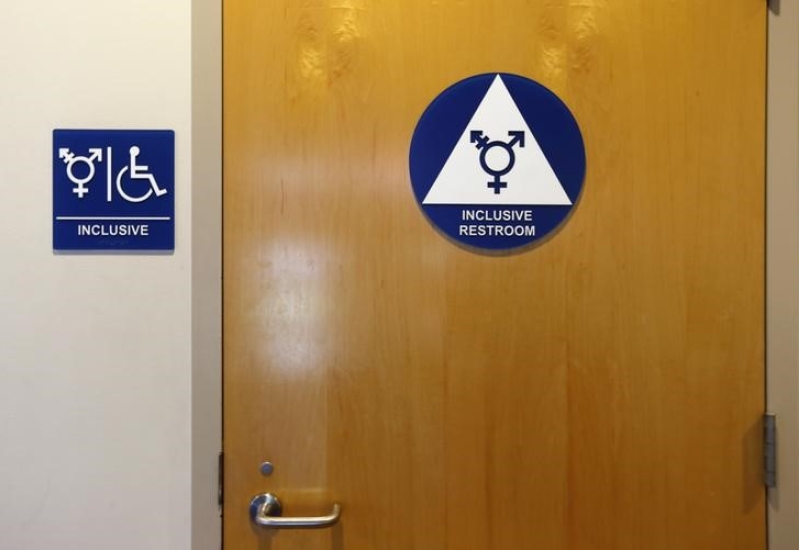
Temples and synagogues affiliated with the nation's largest Jewish movement could adopt gender-neutral bathrooms and their rabbis would be encouraged to give sermons on transgender topics, under a groundbreaking resolution expected to pass at a conference of Reform Jews on Thursday.
The proposal features some of the most far-reaching policies for transgendered men and women seen among any of the nation's mainstream religious organizations, according to advocates for gay and transgendered rights.
It also has generated little discord within the movement of 1.5 million North America Jews affiliated with the Union for Reform Judaism, the organization that will vote on the measure as part of its biennial conference in Orlando.
"It's a big deal but at the same time it's not controversial for them at all," said Michael Toumayan of the national Human Rights Campaign, which advocates for gay rights.
The Episcopal Church and United Church of Christ also have adopted positions in support of transgender issues but the Reform Jewish movement's policy would go further by listing specific actions to promote inclusion, said Toumayan, manager for the civil rights group's religion and faith program.
The resolution is Reform Judaism's first anti-discrimination policy on transgendered issues, said Barbara Weinstein, associate director of the Religious Action Center of Reform Judaism, a public policy advocacy center in Washington, D.C.
Some of those steps include cultural training for religious school staff, sermons on transgender issues and gender-neutral restrooms where feasible, according to the resolution.
The Reform movement in 2003 admitted its first openly transgendered person to rabbinical school and in 2015 required congregations to consider all candidates for rabbinical jobs, regardless of gender identity, according to the resolution.
It calls for public policy changes to make it easier for transgendered persons to update passports, voter registrations and birth certificates, and to be identified with pronouns and have access to public restrooms according to their gender identity.
Many of the 900 affiliated Reform congregations already are welcoming to transgendered persons but others will be addressing the issue for the first time, Weinstein said.
Some smaller religious institutions, such as the Unitarian Universalist Church and the Metropolitan Community Church, which organized as a Christian center for lesbian, gay, bi-sexual and transgendered people, also have strong anti-discrimination policies, Toumayan said.






